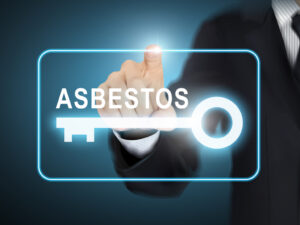Asbestos, a mineral known for its durability and fire-resistant properties, was widely used in various industries and construction projects throughout the 20th century. However, its extensive use has come at a high cost to human health. Asbestos fibers, when released into the air and inhaled, can cause severe respiratory diseases and even cancer. Recognizing the dangers posed by asbestos, the state of Kansas has implemented stringent regulations and guidelines for asbestos abatement.

In this article, we will explore the importance of asbestos abatement in Kansas and how it helps protect lives and preserve the environment.
Understanding Asbestos: Before delving into the specifics of asbestos abatement, it is crucial to understand what asbestos is and why it poses a significant risk to human health. Asbestos is a naturally occurring mineral that consists of thin, fibrous crystals. Due to its strength, heat resistance, and insulating properties, asbestos was widely used in the construction industry for insulation, roofing materials, flooring, and various other applications.
When materials containing asbestos are disturbed or deteriorate over time, microscopic fibers are released into the air. Inhalation of these fibers can lead to serious health issues such as lung cancer, mesothelioma, and asbestosis. The latency period for asbestos-related diseases can be decades, making early detection and prevention essential.
Kansas Regulations and Guidelines: Kansas has enacted stringent regulations to protect its residents from the hazards of asbestos. The Kansas Department of Health and Environment (KDHE) oversees the management of asbestos within the state. They have established the Kansas Asbestos Control Program (KACP), which ensures the safe handling, removal, and disposal of asbestos-containing materials.
The KACP mandates that any project involving the disturbance or removal of asbestos-containing materials must be performed by trained and certified professionals. These experts undergo specialized training to handle asbestos safely and utilize proper techniques to minimize the release of fibers. Additionally, they must follow strict containment and disposal protocols to prevent further contamination.
The Importance of Asbestos Abatement: Asbestos abatement plays a critical role in safeguarding public health and protecting the environment. By identifying and removing asbestos-containing materials, the risk of exposure to harmful fibers is significantly reduced. This is particularly important in older buildings and homes, where asbestos was extensively used in construction.
Kansas’ commitment to asbestos abatement ensures that hazardous materials are properly managed and disposed of, preventing the release of asbestos fibers into the air during renovation, demolition, or other construction activities. By adhering to the regulations and guidelines set forth by the KDHE, professionals can safely mitigate the risk posed by asbestos and minimize the potential for long-term health consequences.
Environmental Considerations: In addition to the human health implications, asbestos abatement also contributes to environmental preservation. Proper removal and disposal of asbestos-containing materials prevent the contamination of soil, water, and air. These materials can contaminate nearby ecosystems, posing risks to wildlife and vegetation.

Furthermore, the recycling and proper disposal of asbestos waste are crucial to reducing the overall environmental impact. By following established protocols, asbestos waste can be safely transported to specialized facilities designed to handle and dispose of it, minimizing the potential for pollution and ecosystem degradation.
Asbestos abatement in Kansas plays a vital role in protecting lives and preserving the environment. Through strict regulations and guidelines, the state ensures that asbestos-containing materials are safely handled, removed, and disposed of by certified professionals. By mitigating the risks associated with asbestos exposure, Kansas promotes public health and environmental sustainability.
Learn more at Wiki as well.